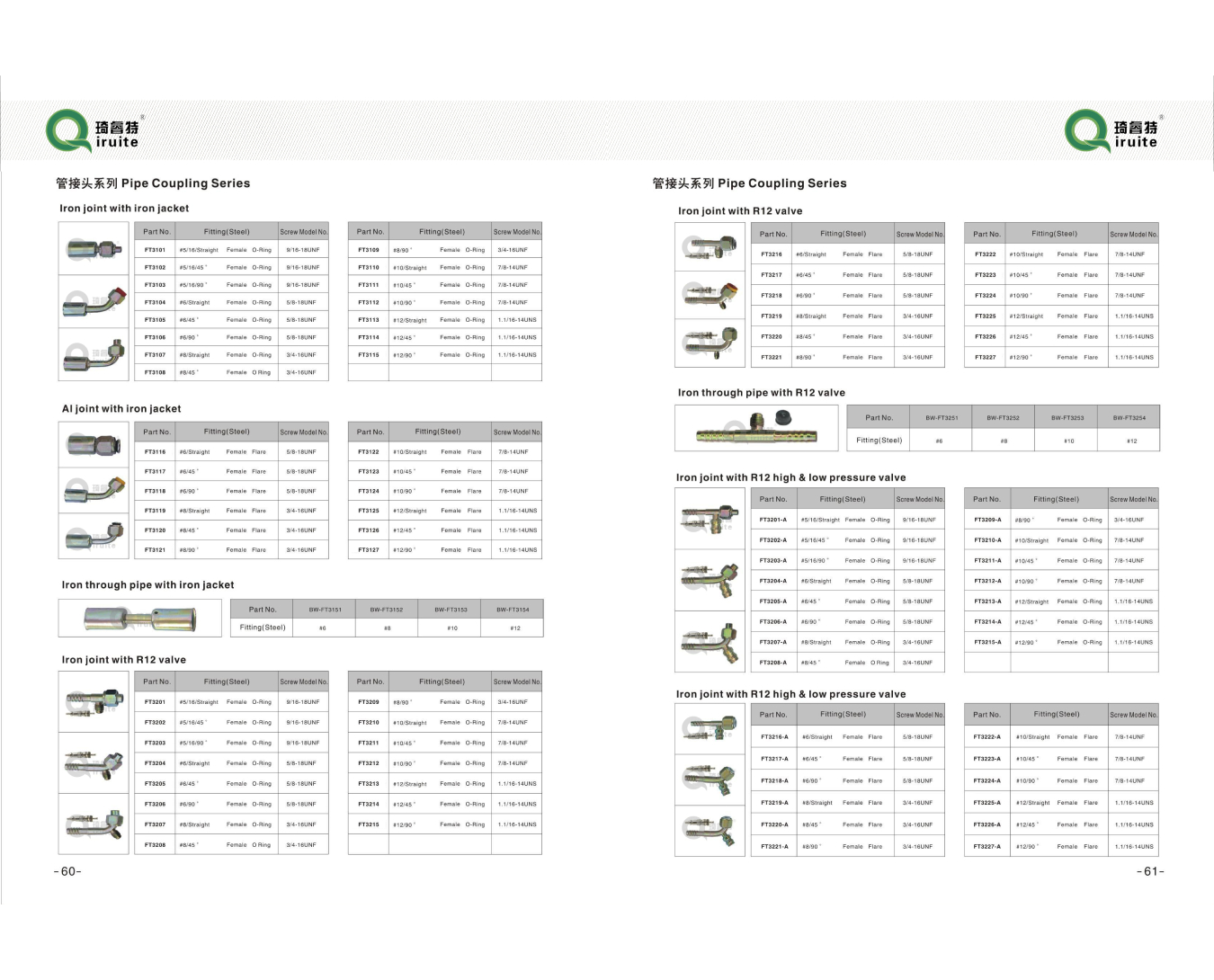Exploring the Benefits and Applications of Flexible Hose Connectors in Various Industries
The Importance of Flexible Hose Connectors An Overview
In various industrial and domestic applications, the significance of flexible hose connectors cannot be overstated. These versatile components play an essential role in fluid transfer systems, providing the flexibility needed to accommodate movement, vibrations, and thermal expansion. This article delves into the definition, applications, benefits, and considerations when using flexible hose connectors.
Understanding Flexible Hose Connectors
Flexible hose connectors are designed to transport liquids, gases, and other materials between different systems or components. Made from materials like rubber, plastic, or metal, these hoses are engineered to withstand pressure while allowing for movement and flexibility. They come in various diameters, lengths, and configurations to suit specific applications, and can be equipped with additional features such as fittings and clamps for secure connections.
Applications in Various Industries
Flexible hose connectors are integral across multiple sectors, including
1. Automotive In vehicles, these hoses are often used for fuel lines, coolant systems, and exhaust connections. Their ability to absorb vibrations and accommodate engine movement is crucial for maintaining integrity and performance.
2. Manufacturing In industrial settings, flexible hose connectors are used in pneumatic and hydraulic systems. They enable precise movement and adaptability in equipment, which is essential for maintaining workflow efficiency.
3. Plumbing In residential plumbing, flexible hoses are often used to connect fixtures such as sinks, toilets, and washing machines. Their adaptability aids in installation, especially in tight spaces.
4. HVAC Systems In heating, ventilation, and air conditioning systems, flexible hose connectors allow for the proper alignment of ducts and fans, accommodating thermal expansion and changes in airflow.
Benefits of Using Flexible Hose Connectors
The advantages of utilizing flexible hose connectors are numerous
flexible hose connector

1. Flexibility As the name suggests, these connectors provide flexibility that rigid piping cannot. This is particularly beneficial in systems subject to vibration or movement.
2. Ease of Installation Flexible hoses are often easier to install than rigid systems, particularly in confined or awkward spaces. This ease of installation can lead to reduced labor costs.
3. Compensation for Thermal Expansion Flexible hose connectors can absorb thermal expansion and contraction, which helps to prevent damage to piping systems and maintain system integrity.
4. Durability Many flexible hoses are designed to withstand harsh environments, resistance to abrasion, and chemicals, ensuring a long service life when properly selected for the application.
Considerations for Use
When selecting flexible hose connectors, several factors should be considered
1. Material Compatibility It’s vital to choose hose materials that are compatible with the fluids or gases they will be transporting to prevent degradation or failure.
2. Pressure Ratings Understanding the pressure requirements of the system is crucial. The selected flexible connector must be capable of handling both the operating pressure and any potential surges.
3. Temperature Ranges Different materials have specific temperature tolerances. Ensuring that the hose can withstand the temperature variations of its environment is essential for long-term operation.
4. Bending Radius Each hose has a minimum bending radius. Exceeding this can cause kinking, which compromises flow and may lead to hose failure.
Conclusion
Flexible hose connectors are essential components in a multitude of applications, providing the necessary adaptability and functionality for transporting fluids and gases. With their ease of installation, durability, and ability to accommodate movement and temperature changes, they are a preferred choice in both industrial and residential settings. By considering factors such as material compatibility, pressure ratings, and bending radius, users can ensure the reliable performance of their systems. In an ever-evolving technological landscape, the role of flexible hose connectors will continue to be pivotal in enhancing efficiency and reliability across diverse industries.
-
Ultimate Spiral Protection for Hoses & CablesNewsJun.26,2025
-
The Ultimate Quick-Connect Solutions for Every NeedNewsJun.26,2025
-
SAE J1401 Brake Hose: Reliable Choice for Safe BrakingNewsJun.26,2025
-
Reliable J2064 A/C Hoses for Real-World Cooling NeedsNewsJun.26,2025
-
Heavy-Duty Sewer Jetting Hoses Built to LastNewsJun.26,2025
-
Fix Power Steering Tube Leaks Fast – Durable & Affordable SolutionNewsJun.26,2025

